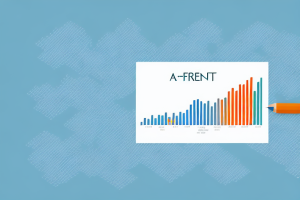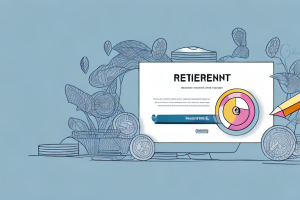Retirement planning is a crucial aspect of financial management at any age. With increasing life expectancies and rising costs of living, it’s essential to evaluate your financial situation, particularly if you’re aiming to retire at 70 with a savings of 500k. In this comprehensive guide, we will explore various factors and considerations to help you determine whether this is a feasible retirement plan.
Understanding Retirement Savings: A Comprehensive Guide
When preparing for retirement, it’s essential to have a clear understanding of your retirement savings. This includes not only the total amount saved but also the sources and types of investments. Retirement savings can come from various channels, including employer-sponsored retirement plans, such as 401(k) or pension plans, individual retirement accounts (IRAs), and personal savings and investments.
To evaluate if 500k is sufficient for retirement at 70, it’s crucial to consider other factors beyond the total saved amount. Let’s delve into these key considerations to get a comprehensive picture of your financial situation.
One important factor to consider when evaluating retirement savings is the rate of return on investments. The rate of return determines how much your savings will grow over time. It’s crucial to have a diversified investment portfolio that balances risk and return to maximize your retirement savings.
Another consideration is the expected lifespan during retirement. With advancements in healthcare and increased life expectancy, it’s essential to plan for a longer retirement period. This means ensuring that your savings can sustain you for a potentially extended period of time, taking into account factors such as inflation and healthcare costs.
Assessing Your Financial Situation: Factors to Consider
Retirement planning involves a thorough assessment of your financial situation. While the total savings is an important element, it’s equally crucial to consider other factors such as your annual income, expenses, and debts.
Understanding your current income and projected expenses during retirement will help determine if your 500k savings is sufficient. Consider your lifestyle expectations, including housing, healthcare, travel, and hobbies, and map out a detailed budget to estimate potential retirement costs. Additionally, take into account any outstanding debts or mortgages that may have an impact on your financial stability.
Another factor to consider when assessing your financial situation for retirement is the rate of inflation. Inflation can erode the purchasing power of your savings over time, so it’s important to account for this when determining if your 500k savings will be enough. Research historical inflation rates and factor in a conservative estimate for future inflation to ensure your savings can withstand the impact.
Furthermore, it’s essential to evaluate your investment strategy and the potential returns on your savings. Consider consulting with a financial advisor to assess the performance of your investments and determine if adjustments need to be made. A well-diversified portfolio can help mitigate risks and potentially increase your savings over time, providing a more secure retirement.
The Impact of Inflation on Retirement Planning
Inflation is an important factor to consider when assessing the viability of your retirement plan. Over time, the purchasing power of your savings decreases due to rising costs. Therefore, it’s crucial to account for inflation when calculating how long your 500k savings will last.
Consult historical inflation data and factor in conservative estimates for future inflation rates. Experts recommend adjusting your retirement savings for inflation and considering investments that provide a hedge against inflation, such as stocks and real estate.
Additionally, it’s important to regularly review and adjust your retirement plan to account for changing inflation rates. Inflation can fluctuate over time, and failing to account for these changes can have a significant impact on the sustainability of your retirement savings. Stay informed about current economic conditions and consider working with a financial advisor to ensure your retirement plan remains robust in the face of inflationary pressures.
Setting Realistic Retirement Goals with 500k
Setting realistic retirement goals is essential to ensure financial stability during your golden years. While 500k is a significant amount, you need to align your expectations with your available savings.
Consider whether you aim for a modest retirement lifestyle or have specific goals in mind, such as extensive travel or starting a small business. Evaluating your goals will help determine if 500k is sufficient or if you need to adjust your financial plan.
It’s important to note that the cost of living and inflation can significantly impact your retirement savings. While 500k may seem like a substantial amount now, it’s crucial to consider how it will hold up over time. Inflation can erode the purchasing power of your savings, so it’s wise to factor in potential increases in expenses when setting your retirement goals.
Analyzing the Potential Return on Investment (ROI)
When assessing the adequacy of your retirement savings, it’s vital to consider the potential return on investment (ROI) your savings can generate. Investment returns play a significant role in increasing the longevity of your retirement funds.
Consult with financial advisors or use retirement calculators to estimate the potential ROI of your investments. Consider diversifying your portfolio to manage risk and maximize potential returns.
One important factor to consider when analyzing the potential ROI of your investments is the time horizon of your retirement. The longer your retirement period, the more time your investments have to grow and potentially generate higher returns. It’s crucial to align your investment strategy with your retirement timeline to optimize your ROI.
Another aspect to keep in mind is the impact of inflation on your retirement savings. Inflation erodes the purchasing power of your money over time, which means that the same amount of money will buy less in the future. To combat the effects of inflation, it’s essential to choose investments that have the potential to outpace inflation and maintain the value of your savings.
Diversifying Your Retirement Portfolio for Long-Term Stability
Creating a diverse retirement portfolio is crucial for long-term stability. Allocating your savings across various asset classes, such as stocks, bonds, real estate, and cash equivalents, can help mitigate risks and increase potential returns.
Consult with financial advisors to understand your risk tolerance and create a portfolio that aligns with your goals and time horizon. Regularly review and rebalance your portfolio to ensure it remains aligned with your retirement objectives and risk appetite.
The Role of Social Security in Your Retirement Plan
When evaluating the adequacy of your retirement savings, it’s important to consider the role of Social Security benefits. Social Security provides a safety-net for retirees and can supplement your savings, especially if you’ve contributed significantly throughout your working years.
Understand how Social Security benefits are calculated and projected for your retirement age. Consider the impact of delaying your Social Security benefits to increase the monthly payouts.
Maximizing Tax Benefits to Stretch Your Retirement Savings
Utilizing tax benefits can help stretch your retirement savings further. Explore opportunities to contribute to tax-advantaged retirement accounts, such as traditional IRAs or 401(k) plans. These contributions can lower your taxable income and potentially increase your retirement savings.
Additionally, evaluate the tax implications of different types of retirement income, such as withdrawals from Roth IRAs or taxable investment accounts. Consult with tax professionals to optimize your retirement tax strategy.
Exploring Different Retirement Income Streams
Having multiple sources of retirement income can provide stability and flexibility. Consider various income streams, such as Social Security benefits, pensions, annuities, rental properties, or part-time work during retirement.
Evaluate the reliability and sustainability of each income source and assess their potential impact on your overall retirement plan.
Evaluating the Cost of Living in Retirement
The cost of living during retirement may differ from your pre-retirement years. Assess potential changes in expenses, such as housing, healthcare, transportation, and leisure activities.
Research the cost of living in different regions or countries if relocation is on your retirement plan. Consider any adjustments needed to sustain your desired lifestyle.
Strategies for Adjusting Your Lifestyle to Meet Financial Goals
If your retirement savings are falling short of your financial goals, consider adjusting your lifestyle to bridge the gap. Look for opportunities to reduce discretionary spending or explore part-time work options in retirement.
By making small changes to your lifestyle and managing expenses wisely, you can ensure a more financially secure retirement.
Assessing Healthcare Costs and Insurance Options in Retirement
Healthcare costs can be a significant expense during retirement. Evaluate potential medical expenses, including premiums, deductibles, and long-term care costs.
Research different healthcare insurance options, such as Medicare, and consider supplementing with private insurance if necessary. It’s important to plan for potential healthcare needs to safeguard your retirement savings.
The Importance of Continual Financial Planning and Review
Financial planning is not a one-time event but an ongoing process. Regularly review and reassess your retirement plan to account for changing circumstances, such as fluctuating financial markets, life events, or unexpected expenses.
Track the progress of your retirement savings and adjust your strategy as needed to ensure you stay on track to meet your goals.
Navigating Potential Risks and Market Volatility in Retirement
Retirees face unique risks, such as market volatility, inflation, and extended longevity. A well-diversified and balanced portfolio can help mitigate these risks.
Consider having an emergency fund to cover unexpected expenses and ensure you have a contingency plan in case of adverse market conditions or economic downturns. Regularly review your asset allocation and make necessary adjustments to manage risks effectively.
Working Part-Time in Retirement: Pros and Cons
Working part-time in retirement can have both benefits and drawbacks. On one hand, it can provide additional income and social engagement. On the other hand, it may limit your flexibility and leisure time.
Evaluate your personal preferences and financial needs when considering part-time work during retirement. It can provide a helpful buffer to your savings and extend the longevity of your retirement funds.
How Long Will 500k Last in Retirement?
Determining how long your 500k savings will last requires careful analysis of various factors, such as annual withdrawal rates, inflation, investment returns, and lifestyle expenses.
Using retirement calculators or consulting with financial advisors can help estimate the longevity of your savings based on different scenarios. Striking a balance between sustainable withdrawals and maintaining your desired lifestyle is essential.
Considering Downsizing or Relocating for Cost Savings
If your retirement savings are falling short of your goals, downsizing or relocating to a more affordable area can be a viable option.
Assess the housing market in your desired location and evaluate the potential financial benefits of downsizing or relocating. Consider the impact on your lifestyle and consult with real estate professionals to make informed decisions.
Building a Solid Emergency Fund for Unexpected Expenses
Creating an emergency fund is crucial for retirement planning. Unforeseen expenses, such as medical emergencies or home repairs, can significantly impact your retirement savings.
Set aside a portion of your savings as an emergency fund to cover unexpected costs. Aim for at least six months’ worth of living expenses to provide a safety net and peace of mind.
Seeking Professional Advice: When to Consult a Financial Planner
Retirement planning can be complex, with multiple factors to consider. If you’re uncertain about your retirement readiness or need assistance in creating a solid financial plan, it’s recommended to seek professional advice from a qualified financial planner.
A financial planner can provide personalized guidance, help optimize your retirement savings, and tackle any specific concerns or questions you may have.
By thoroughly assessing your financial situation, considering various factors, and making informed decisions, you can confidently navigate retirement with 500k in savings. Remember, ongoing financial planning and periodic review are essential to ensure a secure and fulfilling retirement.



